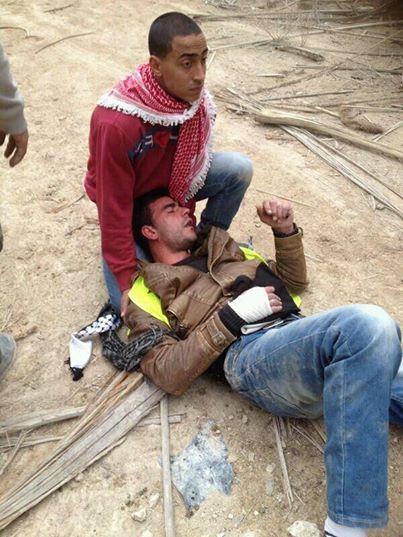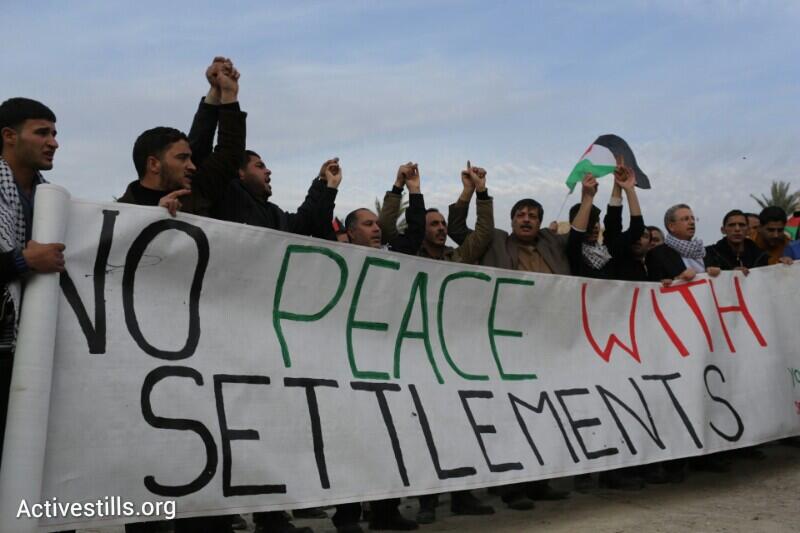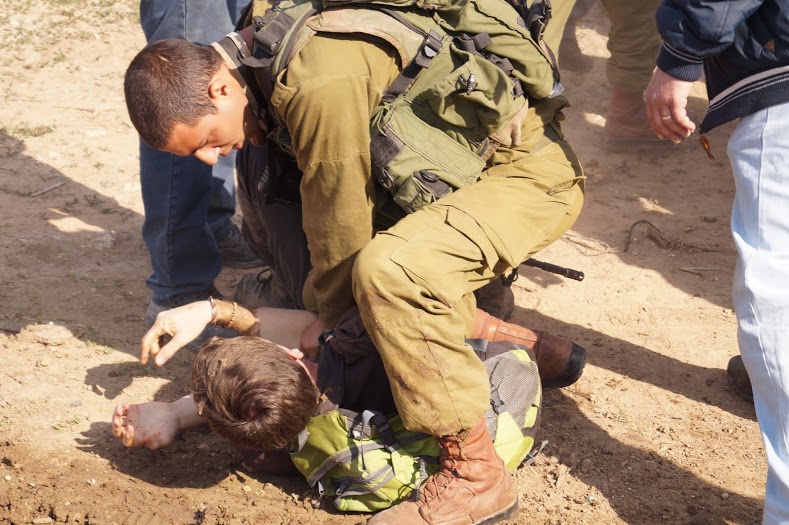Tag: Jordan Valley
-
Israeli forces raid Ein Hijleh as villagers remain steadfast
4th February 2014 | Popular Struggle Coordinating Committee | Jordan Valley, Occupied Palestine Large amounts of Israeli forces and Border Police have made several attempts to raid the reclaimed village of Ein Hijleh and in return the villagers stopped their forced advancement into the center of the village. There were many cases of teargas suffocation…
-
Palestinians launch “Melh Al-Ard” campaign by reviving Ein Hijleh Village in the Jordan Valley
31st January 20014 | Popular Struggle Coordination Committee | Jordan Valley, Occupied Palestine Hundreds of Palestinians announced today the launching of “Melh Al-Ard” (Salt of the Earth) campaign by reviving the village of Ein Hijleh in the Jordan Valley on land belonging to the Orthodox Church and St. Gerassimos monastery. The campaign is launched in refusal…
-
Peaceful protest ends in deportation and imprisonment
20th January 2014 | International Solidarity Movement | Occupied Palestine On Saturday 18th January during a peaceful protest in the Jordan Valley, 19-year-old Ahmad Walid Atatreh, a Palestinian activist and 24-year-old Sven W, a German activist who lives in Switzerland, were arrested and beaten after a march held in Jiftlik Adam Junction. Ahmad is a law student, studying at Al-Quds University in Jerusalem. The…



